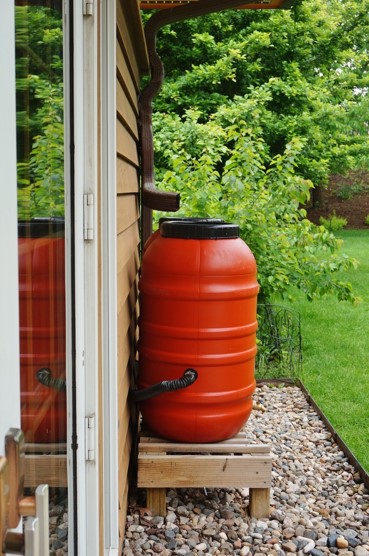Key Tips On How To Reduce Water Waste Within Your Home
Water waste can bring about hazardous effects¾especially if left unattended. Blackwater, for example, can cause respiratory problems, infections and severe illness among your family members. In addition, the amount of water on the planet is finite and should be conserved as much as possible. This is why we must be careful about how we use the water in our homes and reduce the overall water usage as much as possible, to lessen the amount of water waste in our homes.
Here’s how to reduce the amount of water waste within your home.
- Know the different types of water waste in your home.
There are three main types of water waste in your home, and these are:
- Blackwater: water waste coming from your toilet fixtures, food preparation sinks, and dishwashers. Blackwater can be made up of all the things going down your bath, sinks, and toilet. It may contain urine, toilet paper, feces, body cleaning liquids, toilet paper and wipes, cleaning water, etc..
- Greywater: water waste coming from your bathroom sinks, spas, bathtubs, and washing machines. Greywater is treated very differently from blackwater, as it can sometimes be reused.
- Yellow water: water that contains urine and is not contaminated with the materials found in either blackwater or greywater.
By understanding the types of water waste in your home, you can figure out a better way for reducing your water usage. Reducing your water usage translates into lesser amount of water wasted in your home.
2. Find and fix those leaks.
Remember that fixing the leaks in your water line reduces the amount of water wasted in your home. Water coming out from leaks usually ends up becoming greywater. Fixing the leaks also allows you to reduce your overall water usage at home.
A leaky house can waste many gallons of water per day. You don’t want to be wasting water like that! Finding where the leak is the tricky part. But once you’ve found where the leaks are, fixing them should be quick and easy. Most leak problems can be fixed without breaking your bank and only require replacement of some washers or gaskets. Once you finish fixing the leaks, check out your water meter. The meter should now be reading the same after a few hours of no water usage. If it isn’t, continue checking your faucets, shower heads, and toilet fixtures as there could be more leaks there.
3. Use a rain barrel.
If you get a rain barrel for your home, it can hold at least 50-80 gallons of rainwater. You can then re-use the rainwater to wash your car or water your plants. This way you won’t have to use the water from your water supply system. Rain barrels not only help you save on your water bills, but it also reduces the demand for treated tap water, reduce the amount of polluted rainwater flowing into rivers and lakes, and become a good source of water supply during droughts.
4. Shorten your shower times.
Yes, showers are more water efficient than baths. But did you know that you can still save more water by having quick showers? It may be difficult at first, but try keeping your showers at 5 minutes or under.
5. Use water-efficient appliances and showerheads.
Using a water-efficient dishwasher and washing machine can help you reduce water waste in your home. The same can be done for the showerheads in your bathrooms, as well as the toilets. Newer showerheads and toilets have been designed with water-efficiency in mind, and require much less water.
6. Wash full loads.
Your laundry accounts for 15-40% of the water usage in your home. As such, it is only wise that you need to be thoughtful as to how many clothes you wash each week. Washing full loads will lessen your time doing laundry every week¾which translates into lesser water usage and water waste in your home.
7. Always turn off the faucets when not in use.
Don’t let your faucets continue running¾especially if they are not in use. Water from running faucets will only turn into wastewater. When brushing, shaving, or washing the dishes, don’t leave the faucet running. Also, always make sure that your taps are tightly closed when not in use.
8. Avoid watering your plants and lawns with too much water.
Don’t over-water your plants and lawns as this results in excess water running off into streets and gutters. Using soaker hoses can help alleviate runoff in your garden beds. Also, try watering your plants early in the morning where there’s not much evaporation. This will allow your plants to soak up all the water better while not having to use a lot of water.
9. Reuse water if possible.
Greywater is pretty much reusable. You can use the water from your laundry to wash your car or water your garden. Use grey water as much as possible for your water needs where potable water is not needed. This will help you reduce your home water usage and costs, while still supporting a thriving landscape.
Whether it’s fixing leaks or installing water-efficient appliances and showerheads, your goal should be to reduce your overall water usage to lessen the amount of water waste in your home. You just have to be prepared to make a few small changes around your house. This also involves changing your usual habits when using water in your toilets, bathrooms, kitchen sinks, and on your lawn.
Abundant or not, it’s always a good thing to conserve the water supply wherever possible. Not only you can save up on your water bills every month, but you also get to contribute for the betterment of our environment. Wilco Plumbing Services in Sydney hope that the tips mentioned above will enlighten you and encourage you to save up more on your water usage and reduce the amount of water waste you produce in your home.
Peter Graham Peter is a professional plumber who’s had years of experience in the industry. He currently writes for Wilco Plumbing and loves to share his experience and knowledge for those who are willing to learn more about the world of plumbing. In his spare time, he loves spending time with his children and walking the dog.




